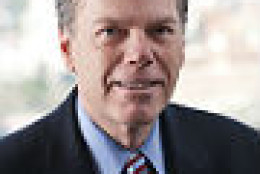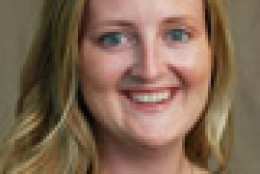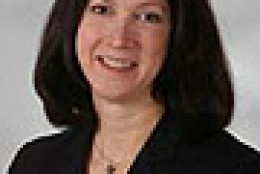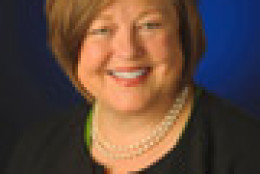SES
-
If you believe the surveys, employee engagement has been declining across the federal government for years. A recent Presidential Personnel memo makes the Senior Executive Service accountable for several agencies' employee engagement through the SES performance management system. So how do you go about increasing engagement? David Dye, a director in Deloitte's Federal Human Capital Group, joined Tom Temin on the Federal Drive to offer some answers.
March 17, 2015 -
We've heard lots of ideas lately on how to fix the problems with the Senior Executive Service. But what would the SES look like if the government wiped it out and started over? Federal News Radio examined this issue in our special report, Fixing the SES. Web Manager Julia Ziegler joined Tom Temin on the Federal Drive to relay some of your comments.
March 06, 2015 -
"If you don't know where you're going, any road will get you there." That's how Carol Bonosaro views the current attempts to reform the Senior Executive Service. Bonosaro, the president of the Senior Executives Association, has written a commentary on FederalNewsRadio.com responding to the "Fixing the SES" series. On the Federal Drive with Tom Temin, Emily Kopp asked Bonosaro to look back on the history of reforms to the SES — a history nearly as old as the service itself.
March 03, 2015 -
If there is to be major reform within the Senior Executive Service, the government needs the appetite to carefully consider exactly what problems it is solving, what it wants the SES to be and how best to get there, says Carol Bonosaro in a new commentary.
March 03, 2015 -
What type of leaders does the government need now and in the future? We ask that in our last installment of "Fixing the SES." On the Federal Drive with Tom Temin, Federal News Radio's Emily Kopp spoke with Shelley Metzenbaum. Metzenbaum previously was at the Office of Management and Budget (OMB), where she served as associate director for performance and personnel management. She is now president of the Volcker Alliance, which, together with the Senior Executives Association, is tackling this question.
March 02, 2015 -
Political leaders of all stripes have long called for reforming the Senior Executive Service. But what if instead of fixing the SES' current problems, the government wiped the slate clean and started from scratch? In part four of Federal News Radio's special report, Fixing the SES, current and former members of the service discuss what the key ingredients would be in a new SES recipe.
March 02, 2015 -
The Office of Personnel Management needs to do more to ensure meaningful distinctions are being made when it comes to performance ratings and awards for members of the Senior Executive Service. That's according to a new report from the Government Accountability Office. Federal News Radio's Emily Kopp joined Tom Temin on the Federal Drive with more details from the report.
February 24, 2015 -
What's the difference between an amazing senior executive and a pretty good one? Not much, says the Government Accountability Office after reviewing agencies' pay-for-performance compensation systems.
February 24, 2015 -
If asked, many people with knowledge of the federal government would agree that problems surround the Senior Executive Service. But if you ask what the problem is, you'll get very different answers. For example, of the 890 career senior executives who left government in fiscal 2014, just two were fired for discipline or performance. Is that because the laws make it hard to fire executives even when they do something scandalous? Or is it because leaders don't want to use the authorities at their disposal? On the Federal Drive with Tom Temin, and as part of her special report, "Fixing the SES," Federal News Radio's Emily Kopp dissected the problems with help from Eddie Ribas. He's an SES member and human-resources expert who has worked at many agencies, including the Office of Personnel Management and now the Federal Energy Regulatory Commission.
February 23, 2015 -
Does the federal government hold members of the Senior Executive Service accountable for their actions? In part three of Federal News Radio's special report, Fixing the SES, current and former senior executives respond candidly to the criticism.
February 23, 2015 -
Political leaders from both the White House and Congress are offering up ways to improve the SES. The latest in our special report, Fixing the SES, is "Why We Stay: SES In Their Own Words." Jeri Buchholz, an SES member and chief human capital officer at NASA, is taking an enterprise-wide view of the system. She tells Federal News Radio's Emily Kopp, the SES has its faults but it's essential to the government.
February 16, 2015 -
Political leaders from both the White House and Congress are offering up ways to improve the Senior Executive Service. There's the mundane — the White House is launching a candidate development program. And the punitive — legislation that would make it easier to fire SES members when things go wrong. Now in our special report, "Fixing the SES," we ask: Is it actually broken? Jeri Buchholz is an SES member and chief human capital officer at NASA. On the Federal Drive with Tom Temin, she told Federal News Radio's Emily Kopp that the SES has its faults but is essential to the government.
February 16, 2015 -
Does the Senior Executive Service need to be fixed? And if so, how? Federal News Radio is currently examining these questions in a four-part special report, "Fixing the SES." Web Manager Julia Ziegler joined Tom Temin on the Federal Drive to relay some of your thoughts on it.
February 16, 2015 -
The SES has lost its luster in recent years, in part because of constrained program budgets, increased scrutiny from Congress, and a sense among members that political appointees are assuming more of the leadership responsibilities once reserved for them. In part two of our special report, Fixing the SES, five Senior Executive Service members tell Federal News Radio why they choose to stay in the service, and why they believe the SES may have its faults, but it's not broken.
February 16, 2015 -
After a one year hiatus thanks to tight budgets, the Office of Personnel Management has reinstated the Presidential Rank Awards in all their glory. The program recognizes members of the Senior Executive Service for extraordinary service with cold, hard cash. Steve Shih is a deputy associate director for Senior Executive Services and Performance Management at OPM. He joined the Federal Drive with Tom Temin with more on the awards' return.
February 11, 2015









